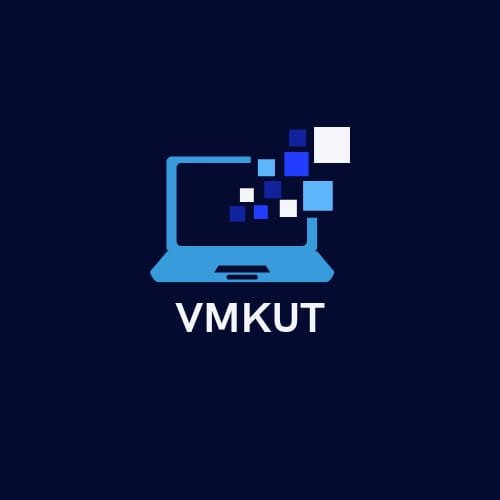VMKUT Skill Development Training Centers (VMKUT SDTCs) play a crucial role in bridging the gap between education and employment. These VMKUT training centers aim to enhance the skills of individuals, enabling them to meet the demands of the job market effectively. This essay explores the importance, structure, programs, and impact of skill development training centers.

Importance of VMKUT Skill Development Training Centers
- Addressing Unemployment: With rising unemployment rates, especially among youth, VMKUT SDTCs provide essential training to equip individuals with marketable skills. VMKUT help reduce the skill gap by training people in areas with high demand for workers.
- Economic Growth: By improving the skill levels of the workforce, VMKUT SDTCs contribute to economic development. A skilled workforce can enhance productivity and innovation, driving economic growth.
- Promoting Entrepreneurship: VMKUT SDTCs often focus on entrepreneurial skills, encouraging individuals to start their own businesses. This not only creates jobs but also fosters a culture of self-reliance and innovation.
- Social Inclusion: VMKUT SDTCs focus on marginalized groups, including women, rural populations, and persons with disabilities. By providing targeted training, these centers help integrate these groups into the workforce.
Structure of VMKUT Skill Development Training Centers
- Types of Centers: VMKUT SDTCs can be government-run, privately operated, or non-profit organizations. Each type has different funding sources, management styles, and training methodologies.
- Curriculum Development: Programs are usually developed in collaboration with industry stakeholders to ensure they meet current job market needs. This collaboration helps in designing curricula that are relevant and practical.
- Training Methods: VMKUT Training can be delivered through various methods, including classroom instruction, hands-on workshops, online courses, and apprenticeships. Blended learning approaches are increasingly popular, combining theoretical knowledge with practical experience.
- Certification: VMKUT SDTCs offer certification upon completion of training programs. These VMKUT certifications can enhance an individual’s employability by validating their skills to potential employers.
Programs Offered
- VMKUT Technical Skills Training: This includes fields such as information technology, electronics, content, SEO, Digital marketing, automotive repair, Agribusiness and construction. These VMKUT programs focus on practical skills that are directly applicable in the workforce.
- VMKUT Soft Skills Development: In addition to technical skills, VMKUT SDTCs often offers training in soft skills such as communication, teamwork, problem-solving, and leadership. These skills are essential for workplace success.
- VMKUT Vocational Training: VMKUT SDTCs frequently provides vocational training in various trades, including carpentry, plumbing, hospitality, and healthcare. These programs are designed to meet the specific needs of local industries.
- VMKUT Entrepreneurial Training: Some VMKUT centers offer programs focused on entrepreneurship, teaching individuals how to develop business plans, manage finances, and market their products or services.
- VMKUT Digital Literacy Programs: With the increasing reliance on technology, digital literacy training has become essential. Programs often include training on computer skills, internet usage, and social media management.

Impact of VMKUT Skill Development Training Centers
- Enhanced Employability: Participants in VMKUT SDTC programs often experience improved job prospects. Skills gained through training make individuals more attractive to employers.
- Increased Income Levels: As individuals acquire new skills and secure better job opportunities, their earning potential typically increases, contributing to improved living standards.
- Workforce Competitiveness: A well-trained workforce enhances a country’s competitiveness in the global market. Companies benefit from a skilled labor pool, leading to increased innovation and productivity.
- Community Development: VMKUT SDTCs can positively impact local communities by reducing poverty, increasing employment rates, and fostering a culture of continuous learning.
- Adaptability to Market Changes: VMKUT SDTCs help workers adapt to evolving job market requirements. Continuous skill updates ensure that the workforce remains relevant and capable of meeting changing demands.
Challenges Faced by VMKUT Skill Development Training Centers
- Funding Limitations: VMKUT SDTCs face financial constraints that limit their ability to offer comprehensive training programs or update their resources and facilities.
- Industry Collaboration: Effective training requires ongoing collaboration with industries. However, aligning training programs with actual market needs can be challenging.
- Quality of Training: Variability in the quality of training provided by different VMKUT centers can lead to inconsistencies in skill levels among graduates.
- Awareness and Accessibility: Many potential beneficiaries are unaware of available VMKUT training opportunities, particularly in rural or underserved areas. Accessibility can also be a barrier due to location or costs associated with training.
- Evolving Skill Needs: Rapid technological advancements mean that the skills required in the job market can change quickly. VMKUT SDTCs must be agile and proactive in adapting their programs.

Future Directions
To maximize their impact, VMKUT skill development training centers can adopt several strategies:
- Leveraging Technology: Incorporating VMKUT online learning platforms can expand access to training, allowing individuals from remote areas to participate.
- Partnerships with Employers: Developing stronger partnerships with local businesses can ensure that training programs are aligned with actual job openings and requirements.
- Focus on Lifelong Learning: Encouraging a culture of continuous education and skill upgrading will help individuals adapt to the changing job landscape.
- Policy Support: Governments can play a crucial role by providing incentives for companies or Institutions to participate in VMKUT training initiatives and supporting VMKUT SDTCs through funding and resources.
- Feedback Mechanisms: Implementing systems for regular feedback from graduates and employers can help VMKUT SDTCs refine their programs and improve outcomes.
Conclusion
VMKUT Skill Development Training Centers are essential in today’s rapidly changing job market. By providing targeted training that aligns with industry needs, these centers empower individuals, enhance employability, and contribute to economic growth. Despite facing challenges, the future of VMKUT SDTCs looks promising, especially with the integration of technology and stronger partnerships with industry. As societies continue to evolve, the role of these centers will become even more significant in ensuring that individuals are equipped with the skills necessary to thrive in the workforce.


